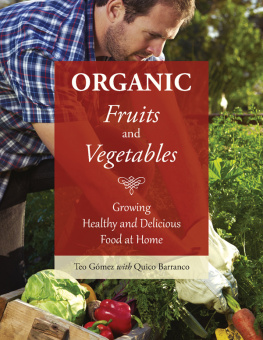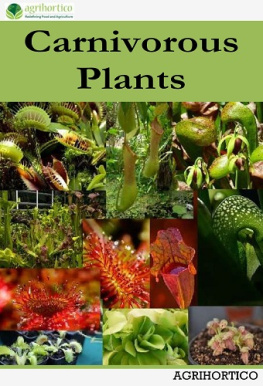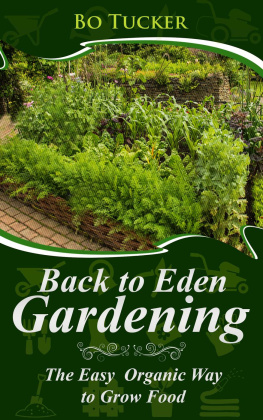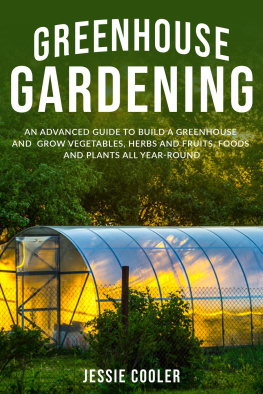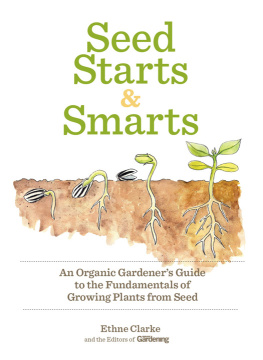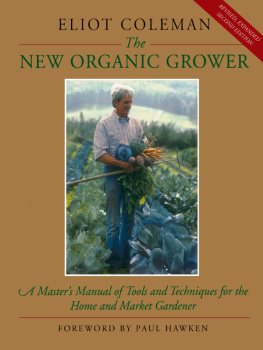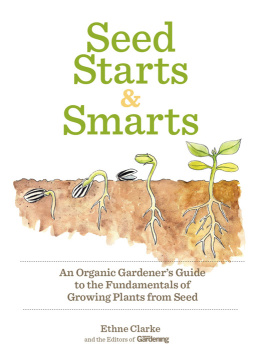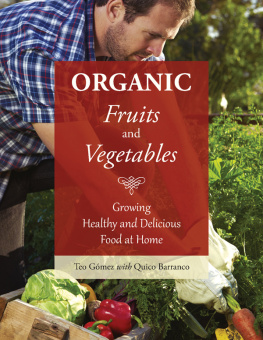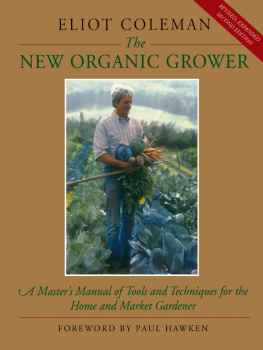
If you want to be happy for a day, drink.
If you want to be happy for a month, travel.
If you want to be happy for a year, get married.
If you want to be happy for life, become a farmer.
C HINESE PROVERB
D EDICATED TO S ERAFIN S ANJUAN AND A LVARO A LTES, PIONEERS OF ECOLOGICAL AGRICULTURE .
Editor's Note: The advice in this book is based on a temperate climate. Refer to your seed packets or a gardening professional if youre located outside temperate zones. Although every effort has been made to ensure that the information in this book was correct at press time, the author and publisher hereby disclaim any liability to any party for any loss, injury, damage, or disruption caused by errors or omissions. Please note that any advice contained herein may not be suitable for every individual.
Original title: TU HUERTO Y JARDN ECOLGICOS
2007 E DITORIAL O CANO , S.L.
(B ARCELONA , S PAIN )
All rights reserved. No part of this book may be reproduced or stored in a retrieval system or transmitted in any form or by any means, whether electronic, mechanical, photocopying, recording or other kind, without the prior permission in writing of the owners.
Photos: Corbis, Getty, Ocano archives; Illustrations: Xavier Bou
English translation 2016 by Skyhorse Publishing
All rights reserved. No part of this book may be reproduced in any manner without the express written consent of the publisher, except in the case of brief excerpts in critical reviews or articles. All inquiries should be addressed to Skyhorse Publishing, 307 West 36th Street, 11th Floor, New York, NY 10018.
Skyhorse Publishing books may be purchased in bulk at special discounts for sales promotion, corporate gifts, fund-raising, or educational purposes. Special editions can also be created to specifications. For details, contact the Special Sales Department, Skyhorse Publishing, 307 West 36th Street, 11th Floor, New York, NY 10018 or HYPERLINK mailto:info@skyhorsepublishing.com .
Skyhorse and Skyhorse Publishing are registered trademarks of Skyhorse Publishing, Inc., a Delaware corporation.
Visit our website at www.skyhorsepublishing.com.
10 9 8 7 6 5 4 3 2 1
Library of Congress Cataloging-in-Publication Data is available on file.

Cover design by Qualcom
Cover photo credit Thinkstock
ISBN: 978-1-63450-347-1
Ebook ISBN: 978-1-63450-908-4
Printed in China
Contents









Introduction: Why ecological
agriculture?
In a not-so-distant future, producers will have to opt for organic crops, products free from chemicals, in the face of increasing demand.
Any agricultural practice that doesnt contaminate the environment and consumes a reasonable amount of energyincluding manual labor, the use of machines, and the consumption of fertilizerscan be considered ecological.
Therefore, ecological agriculture should eliminate as much as possible the use of fertilizers and pesticides on plants. In the case of animals, it should avoid growth regulators in general, including steroids, and the use of medications and dietary supplements.
You could say that the agriculture practiced in ancient times was ecological, since they did not use fertilizers or chemical products to fight plagues or diseases in the plants. However, when we go beyond the regions where agriculture fostered civilizations, it becomes clear that the agriculture that we are going to practice is more ecological than that practiced by, for example, the Sumerians.
Agriculture began in the Near East, in the deltas of the Tigris, Euphrates, and Nile rivers. The young land, formed by sedimentary material washed down from the mountains, had an extraordinary yield because it had never been utilized before.
Land formed in this way produces abundant harvests without needing fertilizer for many years, and then begins to lack essential components that have all been absorbed by the plants. In the Nile, the annual floods brought fertile soil from the mountains of Ethiopia and deposited it across the valley, on both sides of the river, renewing the nutrients each year. In Mesopotamia something similar happened, although the expansion of farming into higher areas forced them to fertilize with the manure of livestock in order to use the soil continually. The ingenious irrigation systems of the Sumerians and Babylonians did not account for the fact that when the water evaporated in the channels, the salt stayed behind and accumulated on the surface and, over time, left the land barren.
The myths of industrial agriculture
Agricultural engineers, chemists, and politicians in general defend industrial agriculture as the only option to end world hunger. Why? Because of the scarce yield of organic agriculture, which requires a greater amount of manual labor and produces less.
First myth
Industrial agriculture will produce food for everyone. In poor countries, many farmers have been dispossessed of their lands, from which they obtained subsistence foods, in order to produce industrial foods such as tobacco and cotton, which only benefit landowners and the government. In Latin America and Africa there are still vast expanses of uncultivated land that could feed millions of people. In the Amazon, they transform immense tracts of jungle into poor pasture land to produce hamburgers destined for North Americans. In many parts of Africa, it would only take some irrigation to convert hundreds of thousands of hectares of arid and unused lands into worthwhile crop land.

This windmill is the cleanest way to bring up ground water without polluting the environment. Unfortunately, they have almost completely disappeared from the landscape, to be replaced by electric pumps that depend on the burning of fuel in a power plant.

